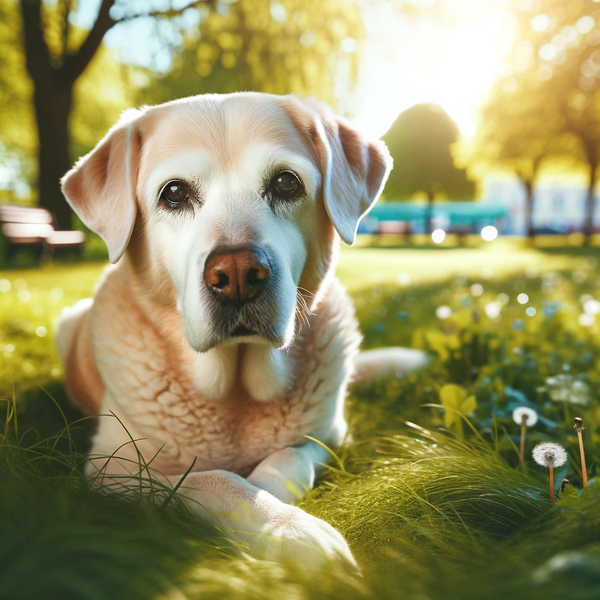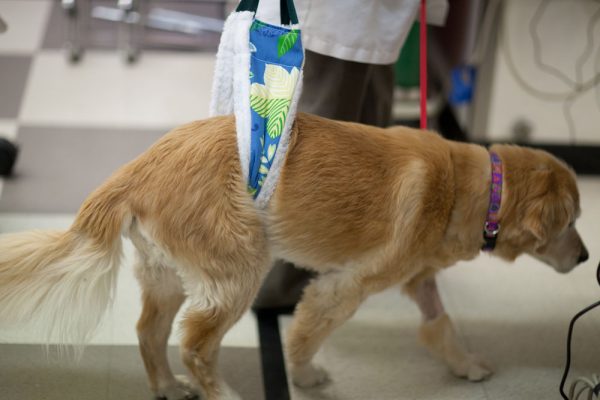Adopting a dog is a life-changing decision, and when it comes to adoption, age is just one of the factors to consider. While puppies often steal the spotlight through the cuteness factor, senior dogs offer a unique and rewarding experience for potential pet owners.
Senior dogs, like their younger counterparts, make wonderful companions, and they have their unique characteristics, needs, and considerations. In this blog, we'll explore the pros, cons, and other considerations of adopting a senior dog, helping you make an informed decision when choosing your new furry family member

Identifying a Senior Dog: Age and Health Considerations
The age at which a dog is considered a senior varies based on factors such as breed, size, and overall health. Smaller dogs tend to have longer lifespans and may not be considered seniors until they're 10 or even older, while larger breeds are often considered seniors as early as 5 or 6 years old.
Advantages of Adopting a Senior Dog: The Pros
1. Maturity and Calmness
Senior dogs are often the epitome of "chill." They've outgrown the puppy stage and have mellowed with age. They're less likely to engage in destructive behaviours, and they often have a more balanced and stable temperament. They're content to lounge around with you, making them an excellent choice for people who prefer a quieter, less active lifestyle. Their calm demeanour can provide a soothing presence in your home.
2. Established Personality
With senior dogs, there are fewer surprises, what you see is often what you get. Their personalities are well-formed and evident from the start, and their temperament is generally known. This allows you to choose a dog whose temperament aligns with your preferences and lifestyle. Whether you want a snuggly couch buddy, a loyal protector, or an easy-going hiking companion, you're more likely to find a senior dog whose personality suits your desires.
3. Training and Housebreaking
Many senior dogs come with a skillset that makes life easier for both you and your new companion. They are frequently already house-trained and may have basic obedience training. This means less time and effort spent on training, leaving more time for bonding and enjoyment. Remember to use Farmer Pete’s healthy treats for continued training.
4. A Second Chance at Love
Senior dogs often linger in shelters longer than their younger counterparts, waiting for that special someone to notice them. By choosing to adopt a senior dog, you're offering a deserving animal a second chance at love, comfort, happiness, and a chance to provide a loving home for a dog that might otherwise spend their golden years in a shelter. The bond that forms between you and a senior dog can be incredibly strong and knowing that you've given them a safe and loving home in their golden years is incredibly rewarding.
5. Health Knowledge
Adopting a senior dog means you typically receive a wealth of information about their health history. You'll be informed about any pre-existing conditions, vaccinations, and past medical treatments. This knowledge empowers you to make informed decisions about their care and to provide them with the best possible quality of life.

Challenges to Consider When Adopting a Senior Dog: The Cons
1. Limited Lifespan
One of the most challenging aspects of adopting a senior dog is the knowledge that their time with you may be shorter compared to puppies or younger dogs. This can be emotionally taxing, as you'll have to say goodbye sooner than if you adopt a younger dog. However, it's important to remember that the quality of time spent with a senior dog is often exceptional, filled with love and mutual appreciation.
2. Health Issues
As dogs age, they become more susceptible to a range of age-related health problems. Arthritis and joint pain can become more pronounced (try Farmer Pete’s Joint Support Meal Topper), dental problems may arise (Farmer Pete’s dental chews are great), and they may experience reduced mobility (Farmer Pete’s Shark Cartilage will help), and potential organ dysfunction. These health issues can lead to increased veterinary expenses and a commitment to providing regular medical care to ensure your senior dog's comfort and well-being are essential to catch and manage these issues early, inevitably providing a better quality of life for your senior companion.
3. Potential Behavioural Issues
Some senior dogs may carry behavioural problems or anxieties due to past experiences, neglect, or trauma. While many of these issues can be resolved or managed with patience, training, and Farmer Pete’s treats of course, it may require additional time and understanding on your part. The good news is that senior dogs can still learn and adapt, and their gratitude for a loving home can be transformative.
4. Limited Time Together
When adopting a senior dog, you may have less time to build a relationship compared to adopting a puppy. However, the depth and quality of the bond you form can be just as rewarding. The wisdom and appreciation of life that older dogs bring can be a unique and enriching experience.
5. Grieving Process
The reality of adopting a senior dog is that you will likely have to go through the grieving process sooner than you would with a younger dog. While it's undoubtedly one of the most emotionally challenging aspects of adopting a senior pet, especially if you've grown deeply attached, it's also an opportunity to demonstrate profound love and care for a dog in their twilight years.
The memories and experiences you share with them are incredibly valuable. It's essential to prepare for this inevitable part of the senior dog adoption journey.

Important Factors in Caring for a Senior Dog
Exercise and Activity:
While senior dogs may not have the same level of energy as their younger counterparts, they still need regular exercise to maintain their physical and mental health. Tailor their exercise routine to their age and condition, opting for shorter, more leisurely walks or gentle playtime.
Diet and Nutrition:
Older dogs may require changes in their diet. Senior-specific dog food is formulated to address the nutritional needs of aging dogs. It typically contains fewer calories to prevent weight gain and more joint-supporting ingredients. Consult with your veterinarian to determine the best diet for your senior dog.
Grooming and Hygiene:
Senior dogs often need more frequent grooming as their coat may become thinner and less efficient at regulating temperature. Regular brushing helps prevent matting, helps with regulating their temperature and dental care is crucial to avoid dental issues that can impact their overall health. Farmer Pete’s Mobile Dog grooming are here to help with any grooming needs or advice.
Medication and Supplements:
Some senior dogs may require medications or supplements to manage age-related conditions like arthritis, heart disease, or cognitive decline. Discuss these treatments with your veterinarian to ensure they are receiving the necessary care.
Comfort and Mobility:
Senior dogs may experience joint pain and arthritis, making comfortable bedding a priority. Consider Farmer Pete’s Joint Support Meal Topper, ramps or steps to help them access higher surfaces more easily, and make sure their environment is safe and accommodating to their needs.
Quality of Life:
While addressing physical health is crucial, don't forget about their emotional well-being. Spend quality time with your senior dog, providing love, companionship, and mental stimulation. Engage in activities that cater to their age and abilities, such as gentle games or simple obedience training.
Adoption and Rescuing:
Many senior dogs are waiting for loving homes in shelters and rescues. Sadly, they are often overlooked in favour of puppies or younger dogs. Adopting a senior dog is not only a compassionate choice, but it also provides them with a comfortable and secure retirement, filled with love and care.
Bonding and Gratitude:
The bond formed with a senior dog can be incredibly strong and profound. They often display a deep sense of gratitude for the love and care they receive in their later years. This unique connection can be emotionally rewarding, creating a profound and lasting relationship.
Conclusion: The Rewarding Journey of Senior Dog Adoption
Adopting a senior dog is an act of compassion and empathy and a selfless. While it comes with its own set of challenges and emotional considerations, the companionship, wisdom, and love a senior dog offer can be an enriching and heart-warming experience that is both personally and morally rewarding.
Ultimately, the decision to adopt a senior dog should be based on your lifestyle, preferences, and your willingness to provide love and care to a dog in their twilight years.
To adopt a senior dog is a testament to your dedication to providing a loving, safe, and comfortable home for a deserving furry friend in their golden years. With the right care and understanding, senior dogs can enjoy a happy and comfortable retirement, knowing they are cherished members of your family. No matter the age, adopting a dog is a commitment filled with love, joy, and shared memories.



